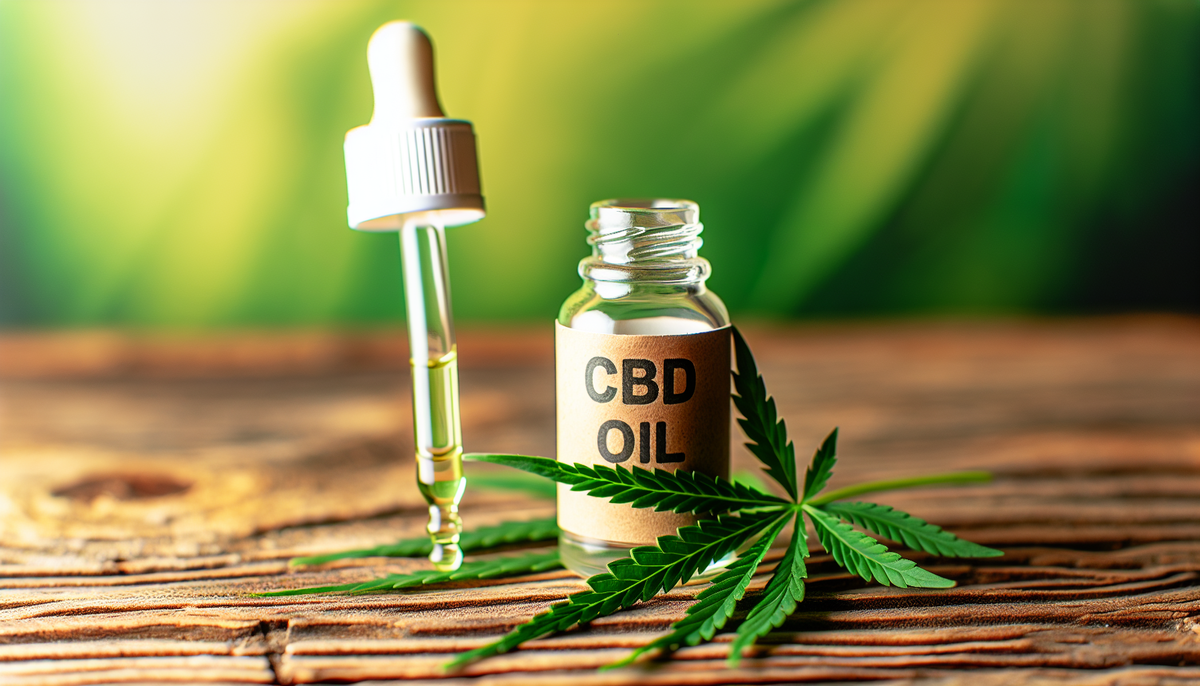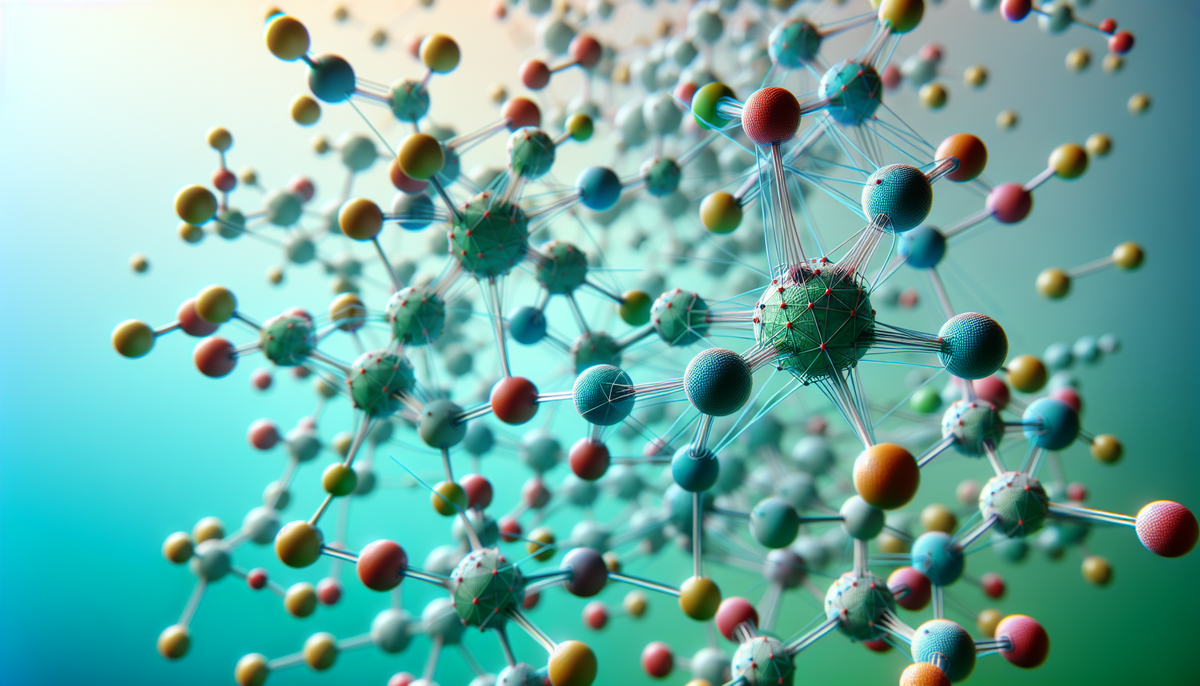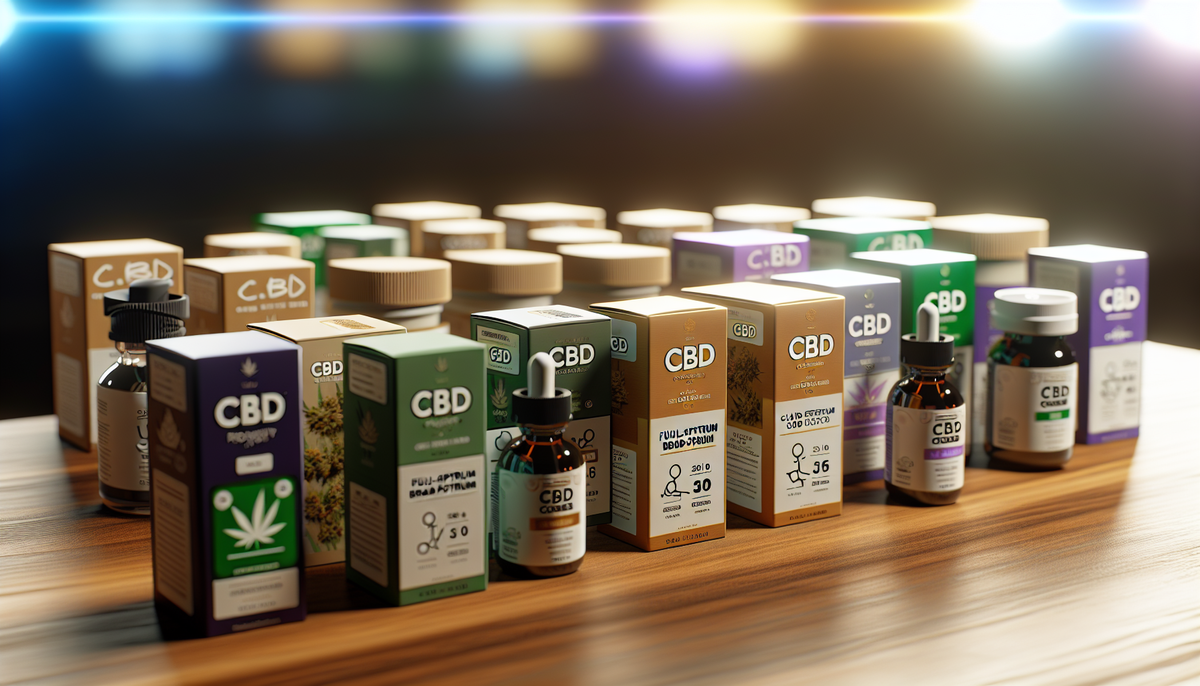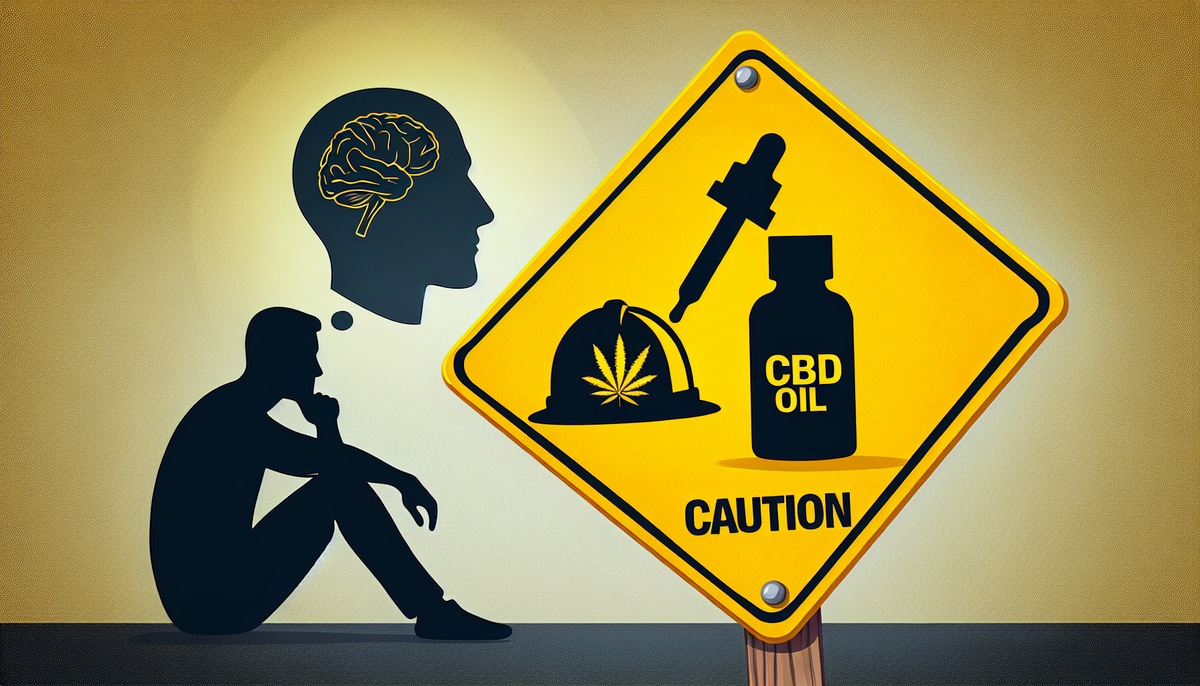CBD for Depression Treatment: Benefits, Dosage, and Safety
Written by: Daniel Fayad, Subject Matter Expert and Website President
Published: March 15, 2024; Last updated: April 6, 2024
- 1. Key Takeaways
- 2. Understanding CBD and Depression
- 3. The Science Behind CBD and Mental Health
- 3.1 Clinical Trials and CBD
- 3.2 Neurological Disorders and CBD Research
- 4. Dosage Guidelines for CBD in Treating Depression
- 4.1 Finding Your Optimal CBD Dosage
- 4.2 High Doses vs. Low Doses
- 5. Types of CBD Products for Depression
- 5.1 CBD Oil
- 5.2 Nonprescription CBD Products
- 6. Safety and Side Effects of CBD
- 6.1 Potential Risks
- 6.2 Interactions With Other Pharmacological Treatments
- 7. Legal Considerations and Quality Control
- 8. Personal Experiences and Testimonials
- 9. Summary
- 10. Frequently Asked Questions
- 10.1 What does CBD do to antidepressants?
- 10.2 Is CBD a stimulant or depressant?
- 10.3 What is the best CBD to take for stress?
- 10.4 What is the recommended dosage of CBD for treating depression?
- 10.5 What are the potential side effects of CBD?
- 11. References
Is CBD a practical option for treating depression? This article directly examines the role of CBD in depression treatment, scrutinizing available scientific evidence and analyzing usage guidelines and safety profiles. While CBD for depression treatment is not a panacea, it offers potential as part of a broader strategy for mood management. Learn the facts about CBD’s therapeutic possibilities and informed advice on its use without the fluff.
Key Takeaways
CBD shows potential as a treatment for depression, acting on the endocannabinoid system without the intoxicating effects of THC. Still, more comprehensive clinical trials are needed to validate anecdotal claims and determine effective dosages.
Variability in CBD product types (full-spectrum, broad-spectrum, isolate) and dosages highlights the importance of personalized treatment approaches, with initial dosing recommendations starting low and gradually increasing to gauge individual effects.
While CBD is generally considered safe with promising therapeutic benefits, users should be aware of potential side effects and drug interactions and remain cautious due to varying state laws and the lack of FDA regulation on most CBD products.
- Do not add CBD into your depression treatment regime without consulting with your healthcare professional!
Understanding CBD and Depression

Cannabidiol CBD is a compound primarily found in the Cannabis sativa plant, with hemp being a common source due to its low THC content. Unlike THC, which produces a ‘high,’ CBD does not have the same psychoactive effects due to its distinct molecular structure and its lack of affinity for the body’s CB1 and CB2 receptors. This makes CBD an attractive option for those seeking to alleviate anxiety and depression symptoms without the intoxicating effects associated with marijuana.
Depression, a common and serious medical illness, negatively affects how you feel, the way you think, and how you act. It can lead to various emotional and physical problems and decrease a person’s ability to function at work and at home. With the increasing prevalence of anxiety disorders, including anxiety and depression, and anxiety-related disorders, the search for effective treatments is vital.
CBD’s potential in treating anxiety and depression has been a hot topic in recent years. The effects of CBD on these conditions are believed to be linked to its interaction with the body’s endocannabinoid system. This complex cell-signaling system plays a role in regulating a wide array of functions and processes, such as:
sleep
mood
appetite
immune response
While anecdotal evidence and growing interest suggest that CBD might relieve symptoms of anxiety and depression, further comprehensive clinical trials are required to validate these claims. Nonetheless, the potential of CBD for anxiety as a treatment for depression is an exciting prospect that’s paving the way for new research and conversations about mental health.
The Science Behind CBD and Mental Health

The science behind CBD and mental health is complex and ongoing. However, several studies have shown promising results. Here are some key findings:
Single doses of CBD ranging from 300 to 600 mg have been found to improve anxiety levels.
In one study, 300 milligrams of CBD significantly reduced participants’ anxiety during a simulated public speaking test, but other dosages, such as 150 milligrams and 600 milligrams, did not have the same effect.¹
These findings suggest that CBD’s effects on anxiety may be dose-dependent.
In addition to anxiety, CBD has also been reported to:
Decrease post-traumatic stress disorder (PTSD) symptom severity alongside routine psychiatric care.¹
Serve as a complementary treatment in mental health care.
Possess neuroprotective effects due to its antioxidant and anti-inflammatory activities across different pathological conditions.
Affects various brain biological targets, including receptors and channels involved in neurodegenerative diseases.
Clinical trials have recorded anti-anxiety and anti-addiction effects with doses of 300–400 mg of CBD. However, it’s crucial to note that these studies often use pure forms of CBD without significant THC content, which differs from products commonly purchased by the general public. The ‘entourage effect’ suggests that full-spectrum and broad-spectrum CBD products, which contain a variety of cannabis plant extracts and may have varying concentrations such as “mg per 30 ml”, may be more effective relative to CBD isolate.
Clinical Trials and CBD
Understanding CBD’s therapeutic potential in treating depression heavily relies on clinical trials. Despite promising anecdotal reports and preclinical studies, there is a need for comprehensive clinical trials to solidify these findings and establish CBD’s impact on depression. Dose-ranging clinical studies are paramount to identifying the therapeutic range of CBD for treating depression. Understanding the therapeutic range is essential to improve treatment recommendations and safety for those considering CBD for depression.
Clinical trials can provide a more unambiguous indication of CBD’s efficacy for depressive symptoms by conducting plasma concentration measurements. This can help researchers determine the optimal dosage for depression treatment and provide a more robust scientific foundation for CBD’s therapeutic potential.
However, clinical trials are not the sole source of information. Valuable insights into CBD’s effects outside a controlled trial environment can also be gained from individual experiences, real-world evidence, and clinical data, all contributing to the growing scientific evidence.
Neurological Disorders and CBD Research
CBD research extends beyond depression and anxiety to include potential therapeutic effects on various neurological disorders. Preclinical research and some evidence suggest that CBD could have therapeutic potential for neurodegenerative disorders such as Alzheimer’s disease and Parkinson’s disease ², as well as in diabetic complications related to neurodegeneration.
CBD’s pharmacological properties could make it practical for neuropsychiatric disorders. Studies have highlighted its antiepileptic activity in refractory epilepsy, although data on its use for Parkinson’s disease are currently limited. Insights into CBD’s potential role in managing a range of neurological and psychiatric conditions can be gleaned from understanding these properties.
Experimental models and relevant animal studies have provided insights into CBD’s potential therapeutic effects, including:
Antidepressant-like effects
Anxiolytic (anti-anxiety) properties
Neuroprotective effects
Managing stress and anxiety
Possible applications in autoimmune and inflammatory diseases
While these findings are promising, more research is needed to fully understand CBD’s therapeutic potential in neurological disorders, including its impact on regional cerebral blood flow.
Dosage Guidelines for CBD in Treating Depression

Establishing the correct dosage for CBD in treating depression is a complex task due to a lack of universally agreed-upon dosages. Research studies have utilized a wide range of dosages, making it challenging to provide a one-size-fits-all recommendation. Hence, determining the appropriate dosage requires consideration of individual factors like:
Age
Sex
Body weight
Overall health
Severity of Depression Symptoms
General guidelines for using CBD to treat depression recommend:
Starting with a low dose and gradually increasing as needed
Aligning with positive anecdotal experiences, with many users reporting improvements in anxiety reduction and sleep quality with CBD
Finding an appropriate product and dosage through trial and adjustment
It’s important to note that these improvements are highly dependent on individual factors and may vary.
Clinical studies report that daily dosing of CBD between 60 to 400 mg does not correlate with a significant increase in adverse effects, indicating a potential safe range for experimentation. However, the safe range does not necessarily represent the therapeutic range. Optimal therapeutic dosage may vary significantly among individuals, hence the need for personalized dosage adjustment.
While research on CBD dosage for depression is ongoing, it’s essential to consult with healthcare professionals before starting any new treatment regimen. They can provide personalized advice based on your health status and potential interactions with other medications you’re taking.
Finding Your Optimal CBD Dosage
Finding an optimal CBD dosage for depression involves considering various individual factors. Age, sex, body weight, overall health, and the severity of depression symptoms all play a role in determining the appropriate dosage. A recommended approach is to start with a low dose of 10 to 20 mg daily and increase by 5 mg each week until the desired effects are achieved. This aligns with many positive anecdotal experiences, suggesting that this method may be a viable starting point for many individuals.
Nevertheless, it should be noted that the potency of CBD oil varies, implying the absence of a universally recommended dosage for depression. The adequate amount depends on individual response and the type of CBD product being used. For example, full-spectrum CBD products may offer more potent effects due to the ‘entourage effect,’ where the combined effect of the various cannabis plant extracts is greater than the sum of their individual effects.
While online dosage calculators can provide a starting point for dosage estimation, their accuracy still needs to be guaranteed. Therefore, these tools should be used cautiously and validated through personal experience. Consulting with a healthcare professional can also help guide dosage adjustments and ensure the safe use of CBD.
High Doses vs. Low Doses
When it comes to CBD dosage, the question of high versus low doses often arises. CBD dosage levels play a crucial role in efficacy and safety, with different therapeutic effects and potential side effects observed across a wide dosage range. High doses of CBD, such as 300-400 mg or up to 50 mg/kg per day, are associated with significant therapeutic improvements in medical conditions like epilepsy, anxiety, and graft-versus-host disease.
However, studies utilizing lower doses of CBD, such as ≤60 mg/day, have shown limited effects. On the other hand, doses over 300 mg daily have provided more explicit evidence of efficacy for anxiety but not for conditions like Crohn’s disease. This reinforces the notion that CBD’s effects may be dose-dependent, and finding the optimal dose for each individual is crucial to maximizing therapeutic benefits and minimizing potential side effects.
Individual sensitivity to cannabidiol and CBD potency is essential when discussing dosage. Some individuals may experience side effects such as increased anxiety with improper dosing. Therefore, starting with a low dose and gradually increasing it while monitoring for any adverse effects is a recommended approach to finding the optimal dosage for depression treatment.
Types of CBD Products for Depression

When it comes to choosing a CBD product for depression treatment, there are several options to consider. Full-spectrum CBD products contain a variety of cannabis plant extracts, including essential oils, terpenes, other cannabinoids such as cannabinol, and up to 0.3% THC. These products are considered more effective for certain conditions due to the ‘entourage effect.’
On the other hand, CBD isolate represents the purest form of CBD, extracted to eliminate all other cannabis compounds, resulting in a product with virtually no THC. This type of CBD product might be a good option for those who are sensitive to other cannabis compounds or who are concerned about potential drug tests.
Broad-spectrum CBD holds similarities to full-spectrum CBD in that it includes multiple cannabis compounds. However, it typically contains zero or negligible amounts of THC while potentially offering the ‘entourage effect.’ This could be a suitable option for those seeking the potential benefits of the entourage effect without the presence of THC.
The choice between full-spectrum, broad-spectrum, and CBD isolate products ultimately depends on individual needs and preferences. Consulting with a healthcare provider or a knowledgeable CBD retailer can provide valuable guidance when choosing a product.
CBD Oil
CBD oil is one of the most popular CBD products used for depression treatment. This product typically comes in a dropper bottle, and the CBD is often mixed with a carrier oil like coconut or hemp seed oil to improve its absorption. The potency of CBD oil can vary significantly, meaning the dosage will also differ according to the product’s concentration.
Using CBD oil for depression involves the following steps:
Place a few drops under the tongue.
Hold it there for a few moments to allow for absorption.
Swallow the oil. This method of administration, known as sublingual administration, allows for fast absorption of CBD into the bloodstream, thus providing quicker effects. However, as with any CBD product, starting with a low dose is recommended and gradually increasing it until the desired effects are achieved.
Nonprescription CBD Products
Nonprescription CBD products are widely available and come in various forms, including:
Oils
Tinctures
Capsules
Gummies
Topicals
Per 30 ml bottle, these products are not FDA-approved and are not subject to the same authorities and requirements as other FDA-regulated products. This implies that there is no guarantee of the purity and composition of these products, leading to concerns about variations in product quality.
Despite these concerns, nonprescription CBD products are federally legal in the United States as long as they are derived from hemp and contain less than 0.3% THC. However, consumers must be vigilant and examine packaging and third-party test results to confirm product quality. Independent testing of full-spectrum CBD products is crucial to ensure legal compliance and the absence of psychoactive THC levels.
Safety and Side Effects of CBD

While CBD is generally considered safe, it may cause side effects in some individuals. Common side effects include drowsiness, lightheadedness, nausea, and diarrhea. These side effects are generally mild and tend to resolve quickly. In some cases, however, CBD might lead to more severe side effects like anaphylaxis, rashes, dizziness, and vomiting.
Individuals with preexisting liver injuries and those taking hepatotoxic medications should exercise caution when using CBD. Those with impaired liver function are at a higher risk of experiencing toxic effects from CBD. Therefore, it’s crucial to consult with a healthcare provider before starting a CBD regimen, particularly for individuals with underlying health conditions.
Despite these potential side effects, CBD has demonstrated tolerability, even at higher doses. However, it’s crucial to note that the safety of CBD largely depends on the individual’s health status, the dosage, and the duration of use. As with any supplement or medication, it’s important to use CBD responsibly and under the guidance of a healthcare provider.
Despite its potential to manage symptoms of depression and anxiety, it is worth noting that CBD is not a definitive cure. CBD should be considered as a potential adjunctive treatment alongside other treatments such as psychotherapy and medication. It’s also vital to remember that everyone’s experience with CBD will be different, and what works for one person may not work for another.
Potential Risks
While CBD is generally considered safe, there are potential risks associated with its use. One of these risks is the possible worsening of depression symptoms when the substance is discontinued. This suggests that while CBD may provide temporary relief from depression symptoms, it may not address the root cause of the condition.
Adverse effects ² associated with CBD usage include:
Liver toxicity
Somnolence
Decreased appetite
Diarrhea
Low blood pressure
These potential risks emphasize the necessity of using CBD under the supervision of a healthcare provider, especially for individuals with preexisting health conditions.
High-risk groups such as early adolescents, patients with comorbidities, and pregnant or breastfeeding women should exercise caution when using CBD. The effects of CBD in these groups are not well-studied, and its use could potentially lead to harmful outcomes. As with any new treatment, a risk-benefit analysis should be conducted with the help of a healthcare provider.
Interactions With Other Pharmacological Treatments
CBD can interact with other medications, potentially leading to adverse effects. For example, it can inhibit cytochrome P450 enzymes, which metabolize a wide array of drugs, including:
antibiotics
antipsychotics
antidepressants
blood thinners
This means that using CBD with these medications could alter their effectiveness or exacerbate their side effects.
Using CBD with medications that promote sleepiness or control seizures, heart rhythm, or blood clotting can also exacerbate side effects or alter effectiveness. This is particularly important for older adults or individuals with liver or kidney disease conditions. Thus, before initiating a CBD regimen, it is essential to engage in a consultation with a healthcare provider to understand potential drug interactions and ensure safe use.
While the potential for CBD to interact with other medications is a concern, it’s also important to note that initial studies suggest CBD has antipsychotic properties that warrant further exploration. However, anecdotal cautions advise against combining CBD with benzodiazepines without consulting healthcare providers due to potential adverse interactions.
Like all treatments, safe and effective use of CBD demands a thorough assessment of potential interactions and side effects.
Legal Considerations and Quality Control
The legal status of CBD in the United States has evolved significantly in recent years. The 2018 Farm Bill removed hemp from the legal definition of marijuana in the Controlled Substances Act, making hemp-derived CBD products with less than 0.3% THC federally legal. However, state laws on CBD vary widely, so it’s crucial to understand the legal landscape in your specific location.
Despite hemp’s removal from the Controlled Substances Act, the FDA maintains the authority to regulate cannabis or cannabis-derived compounds. The agency actively monitors the marketplace and takes action to protect public health against companies illegally selling such products. This matter gains importance as most CBD products are not under FDA regulation, resulting in a market scenario where the guarantee of purity and composition is questionable.
Quality control is a significant concern in the CBD industry, with content often varying significantly from what is disclosed on labels. Mislabeling issues have raised safety concerns, underlining the importance of independent testing and accurate labeling for public health. Therefore, consumers should be vigilant and examine product packaging and third-party test results to confirm product quality and composition.
Personal Experiences and Testimonials
Personal experiences and testimonials can provide valuable insights into the potential benefits and challenges of using CBD for depression. One user reported that using CBD oil helped with mood swings, anxiety, depression, and PTSD, and the effects on mood and pain seemed to last for about a week after discontinuing use.
Another individual found CBD oil beneficial for quieting overactive thoughts and allowing for better focus on daily tasks. This suggests that CBD may offer cognitive benefits in addition to its potential mood-enhancing effects. However, these benefits can vary significantly among individuals, highlighting the importance of personalized treatment approaches.
Testimonials also indicate that combining CBD with lifestyle adjustments such as enhanced sleep, regular exercise, and improved gut health can lead to superior control over anxiety symptoms, including those related to generalized social anxiety disorder ². This reinforces the notion that CBD is not a standalone solution but a potential component of a comprehensive treatment plan.
It’s also important to note that personal experiences highlight the need for experimentation with different brands and formulations to find what works best for each individual. As with any remedy, a therapy that works for one individual may not work for another, underscoring the importance of personal experimentation and adjustment in identifying the appropriate CBD product and dosage.
Summary
In conclusion, CBD holds promising potential as a treatment for depression. Its non-intoxicating nature, combined with its potential therapeutic benefits, makes it an attractive option for those seeking alternative therapies. However, more comprehensive clinical trials are needed to understand its effects and establish standardized dosage guidelines fully.
While CBD is generally considered safe, it’s essential to be aware of potential side effects and interactions with other medications. It’s also crucial to choose high-quality CBD products and to consult with healthcare professionals before starting a new treatment regimen. With ongoing research and increased understanding, CBD continues to pave the way for further conversations about mental health and potential treatment options.
Frequently Asked Questions
What does CBD do to antidepressants?
CBD may affect how the brain’s chemical receptors respond to serotonin, potentially producing both antidepressant and anti-anxiety effects. However, co-administration of CBD with certain antidepressants may increase the risk of side effects.
Is CBD a stimulant or depressant?
CBD can have stimulating effects at low doses and sedating effects at higher doses. It appears to be dose-dependent.
What is the best CBD to take for stress?
For stress relief, the best CBD products to consider are Charlotte’s Web 25 mg CBD Capsules, Cornbread Hemp Full Spectrum CBD Gummies, cbdMD Full Spectrum CBD Oil Softgels, and Joy Organics Organic CBD Gummies (THC-Free). These products are highly recommended for their effectiveness in managing stress.
What is the recommended dosage of CBD for treating depression?
The recommended dosage of CBD for treating depression has not been universally established. It’s best to start with a low dose and gradually increase it based on individual factors and symptom severity.
What are the potential side effects of CBD?
Potential side effects of CBD include drowsiness, lightheadedness, nausea, and diarrhea, and in rare cases, more severe effects like anaphylaxis, rashes, dizziness, and vomiting may occur. Be cautious when using CBD products.
References
Oberbarnscheidt, T., & Miller, N. S. (2020). The Impact of Cannabidiol on Psychiatric and Medical Conditions. Journal of Clinical Medicine Research, 12(7), 393–403. https://doi.org/10.14740/jocmr4159
WebMD. (n.d.). CBD for depression and anxiety: Does it work?. WebMD. https://www.webmd.com/cannabinoids/cbd-depression-anxiety

Written by Daniel Fayad - Subject Matter Expert and Website President
Dan Fayad is a results-driven healthcare administration expert and content writer. With a Master of Health Administration from the University of Southern California, he’s carved a niche for himself in the dynamic world of healthcare and business development. Dan uses his experience to educate and empower people on their wellness journeys.
Join the CBDeals Club!
Get 10% off your first order and receive our best and exclusive promotions directly to your inbox!

